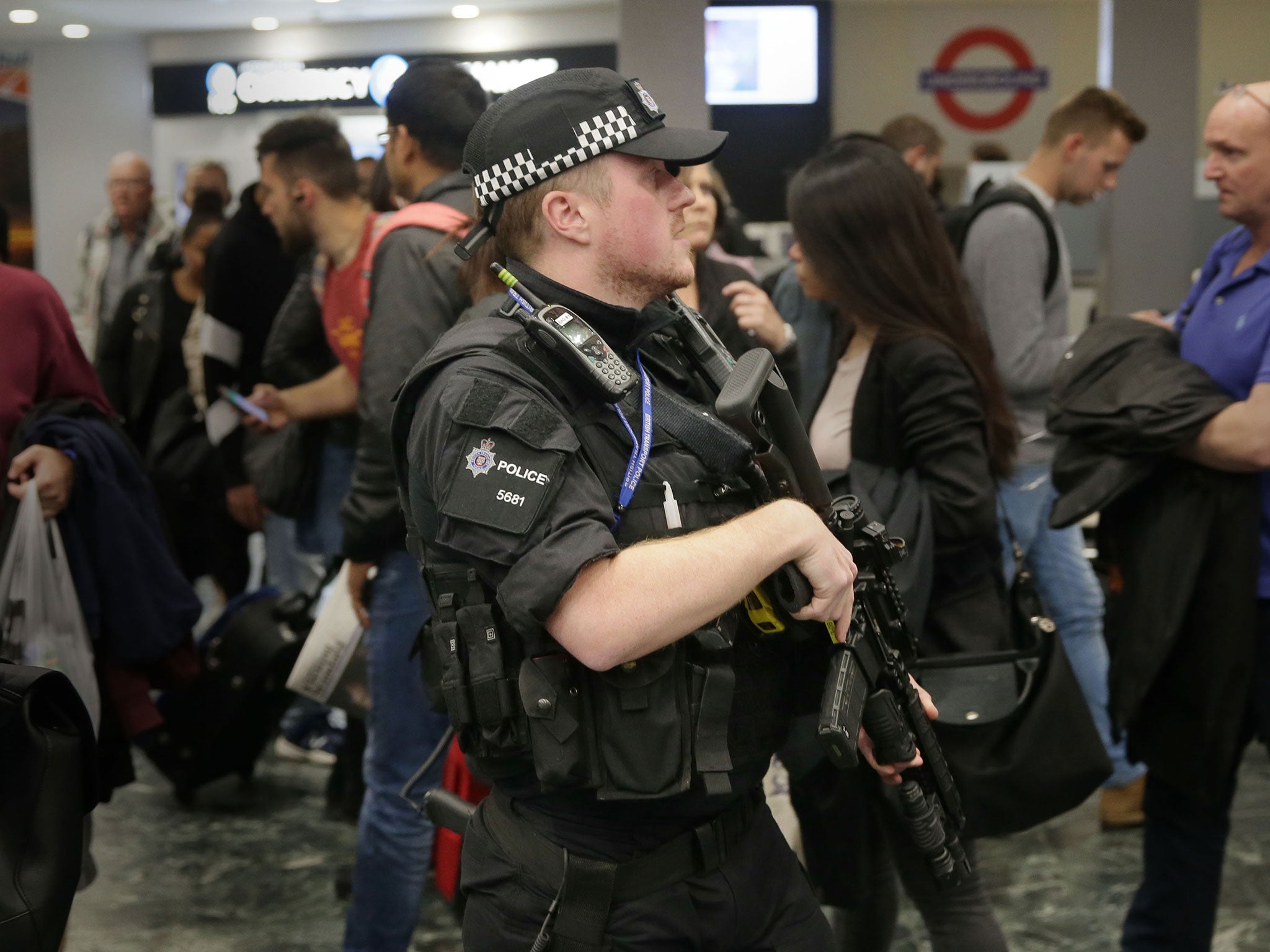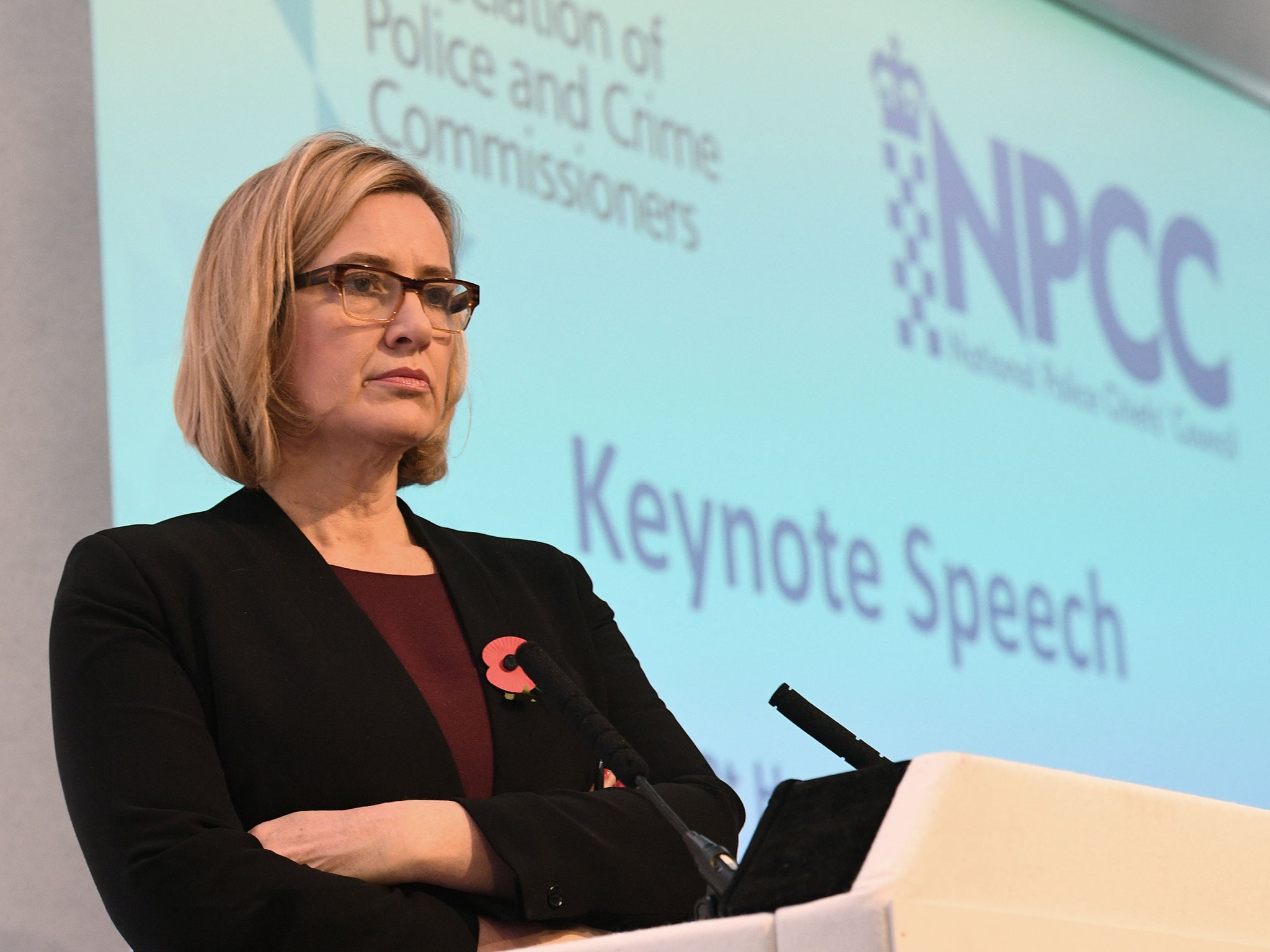Police to get £450m extra funding by increasing money taken from council tax
Anger as Police and Crime Commissioners told to increase precept to fund battle against rise in crime and terror

The Government has demanded police forces increase the amount of funding they take from council tax to fight rising crime and terror.
While awarding millions of pounds to counter-terror police, priority areas and “transformation” funding, the Home Office claimed £270m for day-to-day costs could be drawn from existing grants and the policing precept.
Critics condemned the move as a “stealth council-tax rise” intended to hide the Government’s failure to raise budgets in real terms.
Nick Hurd, the policing minister, insisted the money could be used alongside continued “efficiencies” and reserves to ensure forces have the resources they need.
“I have listened to Police and Crime Commissioners, chief constables and frontline officers,” he told the House of Commons. “It is clear that there is a shifting pattern of demand on police.”
Crimes recorded by police have risen by 13 per cent in a year, including a surge in acid attacks, stabbings, sexual offences and cyber crime.
Mr Hurd said there was also a rising number of victims coming forward to report “hidden crimes” such as domestic abuse, modern slavery and child sexual exploitation.
“Public safety is our number-one priority, and we have responded swiftly to evidence of a shift in demand on forces,” he added.

But Diane Abbott, the Shadow Home Secretary, claimed Mr Hurd had not been “listening hard enough” to police.
“We’ve seen the highest annual rise in police recorded crime in over a decade,” she told MPs.
“The public is increasingly conscious that austerity is as damaging to policing as other public services, because you cannot keep people safe on the cheap.”
The Home Office said the budget for counter-terror policing will go up by 7 per cent in the 2018/19 financial year, seeing a £50m increase to at least £757m.
There will also be £130m extra for Government priorities such as digital technology, and special grants to help forces with exceptional costs.
Police forces will have access to £175m Police Transformation Fund to drive new technology and reform.
The Government claimed police funding was increasing by a total of £450m in the coming year by including increased “precepts” – the amount of money taken out of council tax for policing.
Locally elected Police and Crime Commissioners have been urged to raise contributions by up to £1 a month for a typical household.
Roger Hirst, finance lead at the Association of Police and Crime Commissioners, said most PCCs would welcome the ability to raise council tax precepts in their areas, but warned that a “fairer funding formula” was needed.
“Given the different levels of precept and share of budget accounted for by council tax across different forces, we must recognise that some forces still face significant challenges,” he added.
“We remain concerned as to whether there is sufficient funding to meet increases in demand.”

Steve White, chair of the Police Federation of England and Wales, said that even if precepts are increased there would not be an increase of £450m in real terms. “Forces will continue to feel the pressure of ongoing austerity,” he added.
The Liberal Democrats branded the policy a “stealth council-tax rise” and said it would not be enough to protect forces from the impact of inflation and other pressures.
Amber Rudd, the Home Secretary, said the settlement would “ensure forces have the resources they need to keep us safe”.
“Taxpayers will invest more money in forces because the work our officers do to protect us is absolutely vital, and we recognise demand is changing,” she added.
“My message to police forces is that this increased investment must mean we raise the pace of reform.”
Last month, Ms Rudd told senior police officers to stop asking for more money to combat a rise in recorded crime, violence, 999 calls and terrorism.
Yvette Cooper, the Labour chair of the Home Affairs Committee, said the money from central Government to local police forces was still being cut in real terms.
“This is really not enough funding for police forces across the country given the immense pressures they face,” she added.
Sadiq Khan, the Mayor of London, said the “smoke and mirrors” announcement would not give the Metropolitan Police the money it needs, after instructing it to stop investigating some “low-level crimes” as it works to save £400m.
Saying there would be “no choice” but to take more funding from council tax, Mr Khan added: “The Government’s approach is putting Londoners’ safety at risk, and beggars belief after a year in which we have had four horrific attacks on our city.”
The Government vowed to repeat the same settlement in 2019/20 on the condition that “substantial progress” was made in productivity and efficiency.
The Home Office said it had identified around £100m of “potential savings to be made through smarter procurement of everything from cars to uniforms” and called on police to save money by increasing productivity and mobile working.
It also announced that it would be publishing details of the reserves held by police forces, which currently amount to more than £1.6bn, although the ways in which they can be used are limited.
Last month, HM Inspectorate of Constabulary said forces were failing to respond to low-priority crimes because of “significant stress” caused by budget cuts and rising demand.
Inspector Mike Cunningham warned that some offences were waiting a long time to be solved or even seeing “nothing done at all”, adding: “Under austerity and under cut-backs, the requirement to prioritise has become more acute in recent years.”
According to financial plans drawn up by police forces before Tuesday’s announcement, revenue expenditure would fall by 6 per cent from £12.3bn this year to £11.6bn in 2020/21.
The number of police officers – already at the lowest level since 1985 – was predicted to drop further to 120,217 in the same period.
Join our commenting forum
Join thought-provoking conversations, follow other Independent readers and see their replies
Comments
Bookmark popover
Removed from bookmarks